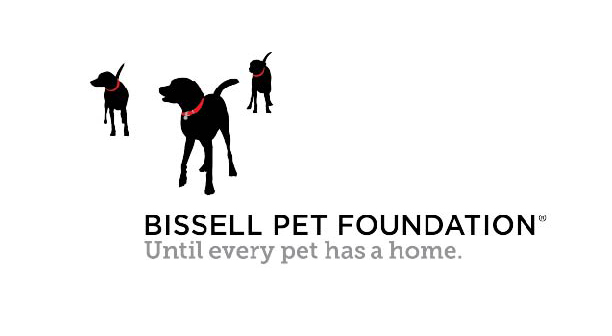St. Clair County Animal Control Office
Make a Donation!**New**
Use Paypal to donate to our medical fund and help us save injured and sick animals that come into our care.
Online Adoption Application**New**
Pre-fill your application before your appointment or simply fill out the application on-site.
Purchase Your Dog License Here!
Please note that all licensing is completed through the Treasurer’s Office. License purchases done by mail or the online system typically take 4-6 weeks to process. Questions?
Email dogtags@stclaircounty.org or call (810) 989-6120.
View Our Dog and Cat Adoptions Here!
Our dogs and cats are examined by our vet, spayed or neutered, vaccinated, dewormed, treated with heartworm, flea, and tick preventative,
microchipped and dogs living in St. Clair County are licensed when you take them home. For all that and a new best friend, our adoption fee starts at just $75 for cats and $120 for
dogs.
Look For Your Lost Pet Here!
Lost pet? Post to For The Love of Louie page on Facebook
- Post to the community pages on Facebook
- Notify Animal Control and Blue Water Humane Society
- Create posters to post in your neighborhood, especially at intersections with stop signs.
Contact Information
St. Clair County Animal Control
3378 Griswold Road
Port Huron, MI 48060
|
Please mail payments to:
Animal Control
P O Box 611233
Port Huron MI 48061
|
|
|
Licensing Hours
8:30am - 4:00pm Monday - Friday
Adoption Hours
10:30am - 3:30pm Monday - Friday by appointment
Closed - Saturday and Sunday
Closed County Holidays
|

|
Frequently Asked Questions
Mission
The mission of St. Clair County Animal Control is to protect the health and safety of our residents and their animals; provide services, resources, and information to build safe
and humane communities; and to promote programs that connect people and companion animals.
Dog Licenses
Dog Licenses are completed through the Treasurer’s office. Please direct questions regarding licensing to dogtags@stclaircounty.org or call (810) 989-6120.
Dog Bite Quarantine
Dogs who have bitten must be quarantined for 10 days past the date of the bite to observe for neurological signs of rabies- fever, seizures, and death. Although very rare in dogs in the US, rabies is always fatal. SCCAC does allow owners to quarantine their dogs at home, however they must either bring the dog in for inspection or provide live video that the dog is alive after the 10 day quarantine. If the bite was severe or the owner wants the dog(s) to be quarantined at our facility, the cost is $10 per day.
Stray/Found Cats
Due to a federal court ruling, St. Clair County considers cats free-roaming animals similar to wildlife. SCCAC only accepts sick or injured stray cats. Most friendly strays are indoor-outdoor cats or successful community cats. “If you feed them, they will come.”—we encourage putting out water but not food for friendly community cats unless the person is actively managing a TNR colony. If the cat is missing the tip of its left ear, it is part of a TNR colony and is vaccinated and neutered, and likely has a community caretaker. SCCAC has handouts on humane deterrents if citizens are concerned about cats on their property.
TNR Colonies
Trap-Neuter-Return colonies have a community caretaker that may provide small shelters and feeding stations for cats on their own properties. TNR cats have been trapped, spayed or neutered, vaccinated against rabies, and ear-tipped (tip of left ear removed) to indicate they are community cats that can no longer reproduce. This is the most effective way to decrease the population of stray cats. SCCAC has resources for education on how to participate in TNR programs.
Wildlife
SCCAC is not licensed to respond or house wildlife. Raccoons, skunks, and squirrels are considered nuisance wildlife and a licensed wildlife removal service or “critter control” is recommended to trap the animal and make recommendations on how to prevent animals from getting into buildings, attics, or garages. Other wildlife such as deer and geese are managed by the DNR.
It is not uncommon to see skunks or raccoons out during the day, although they are most active at dusk and nighttime. Rabbits (and mother cats) leave their nursing young for most of the day to gather food. Calls regarding “orphaned” wildlife are usually the result of mother animals staying away from their young during the day. For truly orphaned or injured wildlife, there are a few licensed wildlife rehab centers like Back to the Wild or the Howell Nature Preserve that are able to assist on a case-by-case basis.
Bats
Although rare, is important to bring the bat (dead or alive) to SCCAC to be tested if it has been in a house with someone sleeping, an infant/toddler, or a non-verbal person. In most other cases, bats can be let out the window or door without incident.
Owner Requested Euthanasia
SCCAC does offer euthanasia services by appointment only for dogs ($50) and cats($25) that are terminally ill, at the end of life, or a public safety risk. Availability of this service depends on staffing and an appointment is needed.
Loose Livestock
Although SCCAC can assist with finding the owner of the animals and provide additional traffic control. SCCAC does not have equipment (corral panels, livestock trailer, etc) to capture or confine loose livestock.


